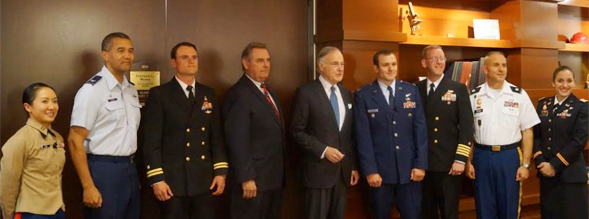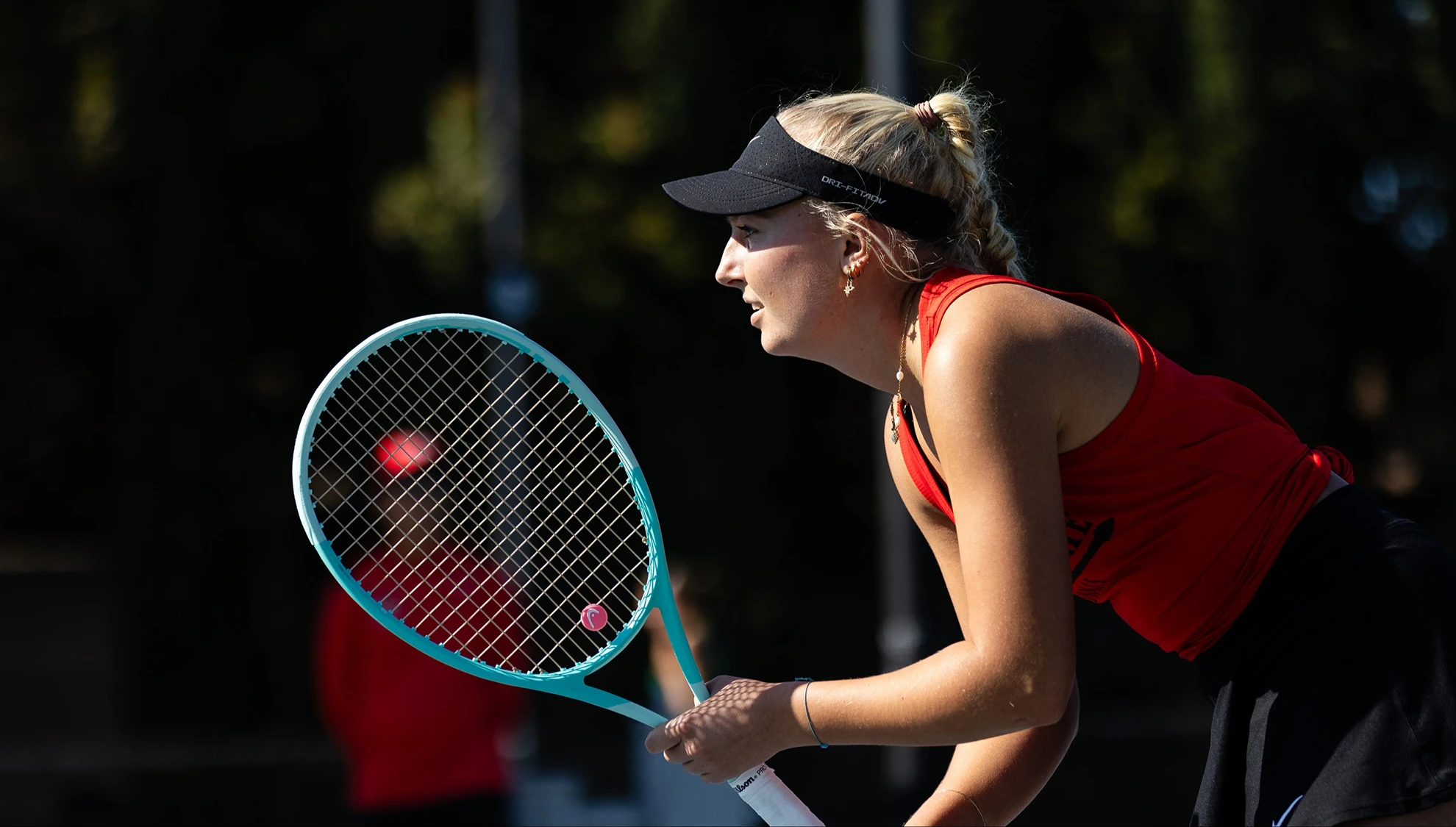Leadership in Combat
Students from SDSUs ROTC programs gained insight from experienced veterans.

San Diego State University recently hosted the annual Blessing Combat Leadership Panel which gives young service men and women — many of whom are commissioning this year — the opportunity to interact and gain knowledge from both experienced veterans and recently deployed junior officers.
Students from SDSU’s Air Force, Army, Navy and Marine ROTC units attended the event, which was endowed by SDSU alum Edward Blessing and sponsored by George and Dorothy Codling and Navy Federal Credit Union.
“The Combat Leadership Panel has become a very important part of helping prepare our future Lieutenants and Ensigns for the challenges they will encounter after they commission and go out to serve in our Armed Forces," said Darryle Grimes, an Air Force Colonel and SDSU professor.
"It dates back to 2008, and it gives our students the opportunity to hear firsthand experiences and lessons from junior officers, a few years older than most of them.”
Panelists included Army First Lieutenant Christe Plackis, Marine Captain Gloria Chiu, Navy Lieutenant Michael Sanders and Air Force Captain Kevin Epstein. Retired Marine Colonel Thomas Caughlan moderated the panel.
Seeking insight
With many of the young service members deploying in the coming months, questions focused on difficult situations and leadership both on-base and in combat.
Sanders stressed the importance of accepting feedback when preparing for their new roles. “It helps you to know how to improve,” he explained. “Be comfortable viewing failure as a positive and not a negative. See failure as massive potential for growth and learn from it.”
Chiu added that one must be “humble and fully embrace input from your experienced non-commissioned officers to succeed in situations that are challenging. You have to be confident to be a good soldier and leader, enjoy your job, care about subordinates and don’t let people push you around.”
Plackis shared, “To succeed in leadership, you must be disciplined. Don’t be the leader that lets the minimum standard be your maximum. Always strive to be better.”
In tough situations, when faced with options of either bad or worse, Epstein said to “prioritize and execute. All of the past training drives your decisions. You are already ahead of the decision. Risk assess, make the decision and move on.”
Lieutenant Sander expressed that he and the other soldiers know what is “morally, legally and the right thing to do,” and with this, they will succeed in their positions within the military.
Lessons learned
Students who attended the event said they learned valuable lessons.
“One point that resonated with me was the advice to ‘solicit feedback,’" said Cadet First Class Joshua Meersman, a senior psychology major. "As a future officer, I'll be dealing with many situations where ‘doing it right’ is the only viable option for the job, so we will be constantly looking to my superiors as well as the non-commissioned officers around me.”
Cadet First Class Monica Liu, a senior studying aerospace engineering said, “It was inspiring to hear the panelists discuss their first assignments and having to gain their subordinates' respect. They showed us that as leaders, people depend on us, and I will have to be confident, trust our abilities and our Non-Commissioned Officers and start from there."
Blessing's commitment
Troops to College advocate, former Alumni Association President and Texas businessman Edward W. Blessing (’60, interdisciplinary studies) has funded the Combat Leadership Panel for the past six years. Along with sponsoring the panel, Blessing is also an active supporter of the SDSU Student Veteran Organization.



